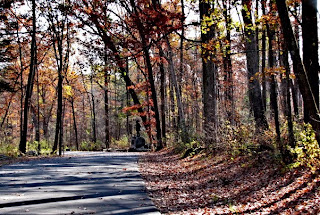


 After Apple Picking by Robert Frost : The Poetry Foundation [poem] : Find Poems and Poets. Discover Poetry.
After Apple Picking by Robert Frost : The Poetry Foundation [poem] : Find Poems and Poets. Discover Poetry.Here’s a classic, as well as a quiet Sunday evening and November poem (or literally, October, I suppose). In the language of our time, we might also see it as metaphorical talk about
retirement in addition to the approach of old age and death. The speaker's long, careful work has been finished—it had to be, for more would be all “ache” and might supplant the somber, dignified sense of completion he feels.
When a poem seems as natural, approachable and likable as the Tufted Titmouse to the left,
we need to ask how it got that way. We need to make a conscious effort to notice any parts or features we especially like. So if you feel like it, please comment on any images, phrasings or ideas you find striking or unusually appealing.
The following three and half lines ring true for me in describing a kind of work that matters to the speaker, maybe a career as opposed to a job.
. . . I am overtired
Of the great harvest I myself desired.
There were ten thousand thousand fruit to touch,
Cherish in hand, lift down, and not let fall.Is it far-fetched or corny to see those lines as an apt analogy to a teaching career? If students are not delicate apples who (think they) will be tossed onto the cider heap of inferiority if teachers mishandle them, then I have badly misconstrued much of the enterprise.
Mind you, the delicate fruit doesn't
have to be students. How about photographs or other works of art, pieces of writing, an attorney's clients, a doctor's patients, a carpenter's pieces, a mechanic's restored machines, one's own children, old or current loves? Haven't most of us carried one or another kind of fruit and felt forced to be careful with it? Maybe this is my favorite
idea in the poem: the effort was worth it, but from it we can feel overtired, even though it's the harvest we desired.
As a final note, here is Frost sounding entirely casual and conversational again, for example: "and not let fall." There must be other, but more formal ways to say that, but Frost wants to sound as if he's chatting over a New England stone fence. So we need to notice the poem's rhyme and meter (on a third reading, if not the first). Monday's assignment, therefore, is a five-page paper on the ways Frost's poetic devices affect the poem as a whole, the good, the bad, and the ugly. Of course, your choosing to accept the mission doesn't mean I'm going to read it . . . .
If you focus on the bad and the ugly, you might wonder, with me, whether the woodchuck at the end is just a too-folksy way to avoid saying "death." I'm not being coy; my jury really is still out, has been for decades, on a whole host of things.
**























 Jean Spitzer said...
Jean Spitzer said...



























